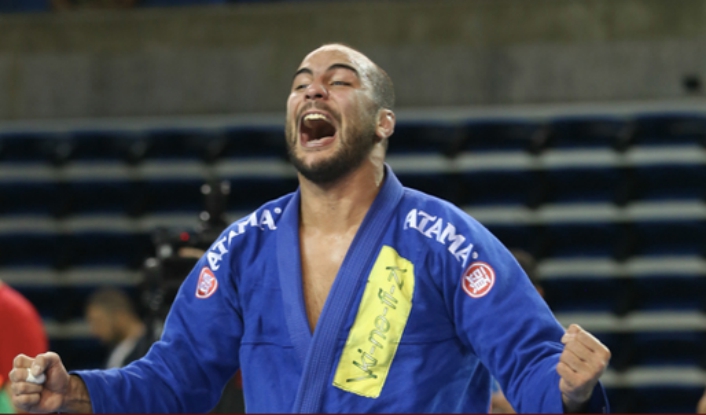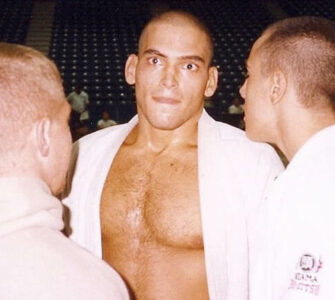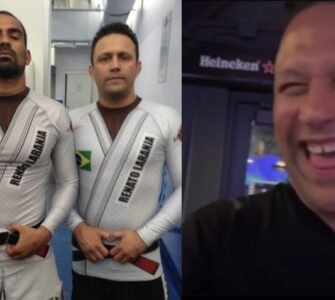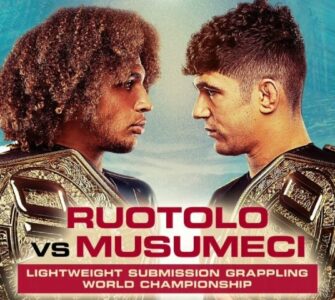In Jiu-Jitsu , much has been said about the controversial positions, as berimbolo, 50-50 and the double guard pull. Some BJJ players are completely against these techniques, while others claim that they do not influence the match, saying that the athlete should know how to use them as a form of attack. The IBJJF recently released some changes to be made to allow for more action during fights.
Champion weight and absolute at the last Pan American, held in March, Bernardo Faria also spoke on the subject.
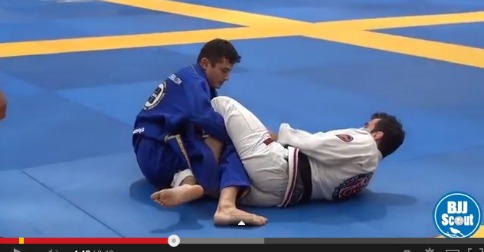
Double guard pull
In an interview with Tatame, the athlete revealed that the three positions mentioned do not match his style of fighting:
“None of these three positions match my style. I do not like the position 50-50, do not like doing the berimbolo and when I pull, I either go up, or let the guy go up. I do not like to sit still. I have nothing against the people who use them, but I just think that these positions should not be used to control the Jiu-Jitsu match. For example: the guy who is in the 50-50 wins because of two advantages and want to stay the whole fight in that position, I think it has to be punished as soon as possible.”
“I believe that the rule needs to be increasingly severe for these positions. Indeed, many people used to tie the match. There are fighters that use this in an offensive way. Luiz Panza, fighting in my division, actually attacks. But in my opinion, if a minute passes and nothing happened, we should return to stand-up and take the position because really the 50-50 is a very easy position to tie the match. Regarding berimbolo, I find it a sweep like any other, so I think it’s a good position if the guy is used to doing it. And the double guard pull … I can not lie. I believe that the two players doing that have to be punished and be disqualified, perhaps because it goes against the foundation of Jiu-Jitsu, which is about moving forward, and not just to be waiting for the opponent to do something, “

